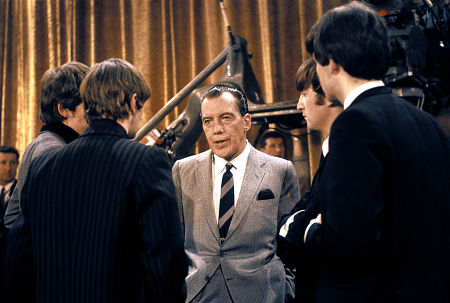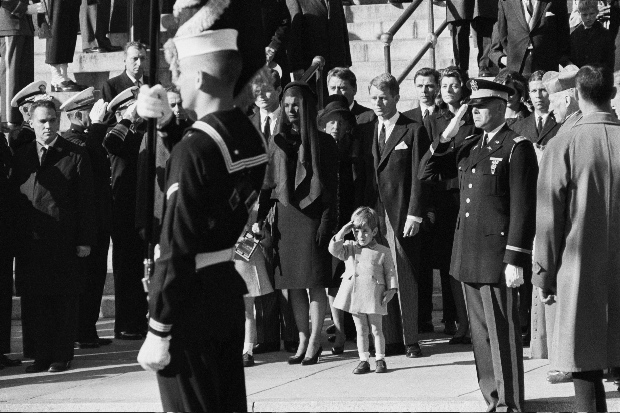
9 February 1964 — I’m 13 years-old, an 8th-grader, in my first year at
an all-boys New England boarding school. No access to television
— required to be in study hall between dinner and lights out in our dorms.
The Beatles are appearing on the Ed Sullivan show for the first time.
What to do?
It’s possible to sign out of study hall to work in the library.
Three friends and I do this. Just before the Sullivan show goes
on we sneak out of a bathroom window in the library, move from shadow
to shadow across the campus to the math building, where there is a
television which juniors are allowed to watch. We enter the room
with the television where about twelve juniors are gathered. The
moment of truth arrives. If the older boys decide to bust us,
we’re in serious trouble with the school authorities, with so many
demerits it will take us the rest of the term to work them off on
campus maintenance details, with all privileges suspended.
For the first time it strikes me what a strange thing it is I’m
doing. I was a nerdy straight-arrow of a kid back then — I don’t
think I’d ever knowingly broken a school rule in my entire life.
Somehow, though, the Beatles seem bigger than school rules.
The juniors smile and stare at us for a few moments, giving us time to sweat — then wave us in. We watch the Beatles on the show.

This is the same television, in the same room, where we were allowed to watch coverage
of the JFK assassination not quite three months earlier. Hard not to process the Beatles, purveyors of joy, as a kind of answer to Lee Harvey Oswald.

We sneak back across the campus, climb back in the library window . . .
undetected. The librarian, a plump, genial woman, looks at us
wryly as we sign out — I’ve always suspected that she noticed our absence over the
course of the evening but decided not to bust us, either.
The decade of rock music and assassinations, desire and transgression had begun. The Sixties were on.

Lloyd,
I hope this is the beginning of more writing and graphics to come, especially as it is something we (not just SPS) but our generation can weigh in on. It might seem very anachronistic to anyone not familiar with prep school at the time (what, no girls? you’ve got to be kidding), the strict rules and the authoritarian nature of campus life for “kids” but that was our world for a time, strange as it was.
Missed you at the reunion last year but hope to see you at one in the future. BTW, love the pic “severe storm at sea”. I would like to forward this to Brett Littlehales. Take care,
Bill
Yes, Bill — our time at the school reads as more Dickensian than 20th Century but, boy, breaking the rules to see The Beatles, and getting away with it, was exhilarating.
I neither knew of nor, if I knew, understood the fascination that Lloyd and others had with the Beatles. Any phenomenon that caused prepubescent girls to act that way was beneath my notice. Then, in the Summer of 1965, my family and I were in a hotel in London and my older brother asked whether I wanted to go next door to see the Beatles’ movie (“Help!”). I went, reluctantly. That was the beginning of a fifty-year love affair.
In the Fall of 1963, Graham Wisner’s cousin in England had sent him a Parlophone 45 of “She Loves You” to clue him in about Beatlemania. He didn’t get what the fuss was about, either, but I thought it was the greatest record I’d ever heard so he gave it to me. I still have it.
http://stevestiles.com/krazzee2.gif
Love Krazy Kat.